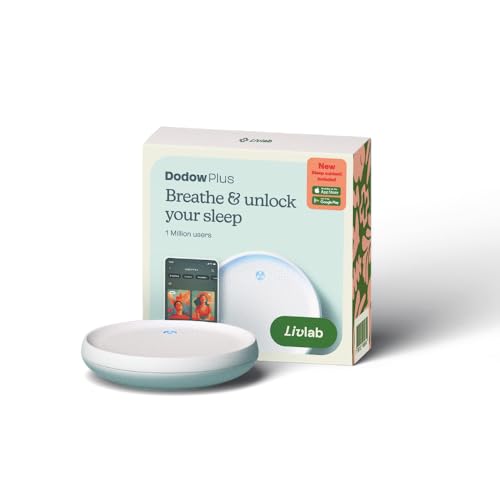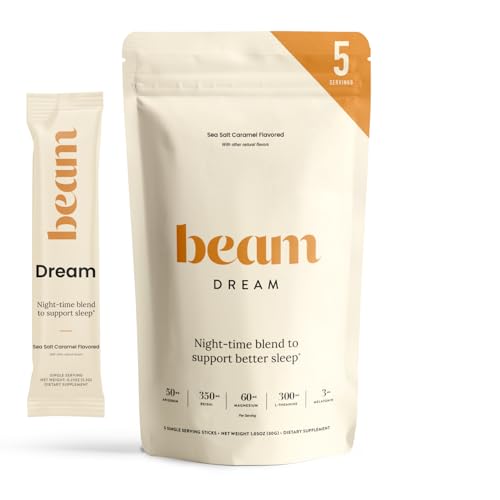Disclosure
This website is a participant in the Amazon Services LLC Associates Program, an affiliate advertising program designed to provide a means for us to earn fees by linking to Amazon.com and affiliated sites.
Introduction
Sleep deprivation is far more dangerous than simply feeling tired—it can wreck your brain, body, and even your life. While skipping a few hours of rest may seem harmless, the truth is that chronic sleep loss is linked to a terrifying list of physical, mental, and emotional effects.
Did you know that just 24 hours without sleep impairs your brain as much as being legally drunk? Sleep isn’t a luxury; it’s a biological necessity as critical as food and water. Yet millions of people unknowingly sabotage their health every night.
Best Sleep Aids for Combating Sleep Deprivation
Struggling with sleep deprivation? These top-rated products can support better sleep and help you reclaim your health and energy. Whether you’re dealing with insomnia, stress, or irregular sleep patterns, here are three highly recommended solutions:
1. Hatch Restore 2 Smart Sleep Assistant
- Bundle and save: Bundle our Hatch Rest 2nd Gen and Hatch Go together for better…
- One for sleep routines at home, and the other for uninterrupted sleep on the go.
- Rest 2nd Gen: Sleep for them. Peace of mind for you. With gentle lights and…
- Why we picked it: Combines sunrise alarm, white noise machine, and smart light therapy to help establish a healthier sleep routine naturally.
2. Dodow Sleep Aid Device
- Meet Dodow Plus, the enhanced version of the original Dodow, now with a…
- 💤 Lull your busy mind to sleep 💤 Let Dodow’s calming light and guided…
- 🫶 Easy, convenient, and flexible to use 🫶 Choose between an 8 or 20-minute…
- Why we picked it: A metronome light system that guides your breathing—scientifically designed to slow your mind and body for faster sleep.
3. Beam Dream Powder – Sleep Blend
- Why we picked it: A clean, non-habit-forming supplement with melatonin, magnesium, and reishi—designed to help you fall and stay asleep peacefully.
Cognitive Decline and Brain Fog
Sleep is essential for brain health. Without it, your mental sharpness starts to slip—and fast. One of the earliest and most noticeable effects of sleep deprivation is cognitive decline, which can feel like your brain is stuck in molasses.
What Actually Happens to Your Brain When You Don’t Sleep:
- Reduced attention span: Even small tasks become hard to focus on.
- Slower reaction times: This makes everyday activities—like driving—dangerous.
- Memory problems: Your brain struggles to store and recall information.
- Poor decision-making: Sleep-deprived brains are more impulsive and less rational.
- Impaired learning ability: New information doesn’t “stick” when you’re not well-rested.
Why This Should Scare You:
Think of your brain as a high-performance computer. Sleep is its nightly reboot. Without that reset:
- It begins to malfunction.
- You experience mental fog, confusion, and forgetfulness.
- Over time, this can contribute to long-term cognitive disorders like Alzheimer’s disease.
Real-World Impact:
- Workplace performance drops.
- You’re more prone to errors.
- Conversations become harder to follow.
- You might forget names, meetings, or even what you just read.
Weakened Immune System and Increased Risk of Illness
When you don’t sleep enough, your body becomes more vulnerable to infections, diseases, and slower healing. Sleep is when your body repairs itself—skip it, and your immune defenses crash.
What Sleep Does for Your Immune System:
- Boosts immune cell production (T-cells and cytokines).
- Strengthens antibody responses to viruses and vaccines.
- Supports inflammation control, keeping your body in balance.
When You’re Sleep-Deprived:
- White blood cell count drops – your body can’t fight off infections as effectively.
- Inflammation spikes – linked to chronic diseases like heart disease and cancer.
- Wound healing slows down – even small injuries or colds take longer to recover from.
Scary Health Risks Tied to Poor Sleep:
- You’re 3x more likely to catch a cold after just one bad night.
- Long-term sleep loss can lead to:
- Increased risk of diabetes
- High blood pressure
- Weakened response to vaccines
- Frequent illness and longer recovery times
Everyday Signs Your Immune System Is Struggling:
- You get sick more often than others.
- Minor colds or flu linger for weeks.
- Allergies worsen or flare up more often.
- You feel sluggish or sore, even without working out.
Mental Health Deterioration and Mood Disorders
Sleep and mental health are deeply connected. Lack of sleep doesn’t just make you cranky—it can destabilize your entire emotional well-being. In fact, chronic sleep deprivation is both a cause and a consequence of mental illness.
Immediate Psychological Effects of Sleep Deprivation:
- Increased irritability – even small annoyances feel overwhelming.
- Mood swings – from low to anxious within hours.
- Heightened stress response – cortisol (stress hormone) levels spike.
- Impaired emotional regulation – you cry easier, lash out more, or feel numb.
Sleep Loss and Mental Health Conditions:
Studies show that people with poor sleep are:
- 5x more likely to suffer from depression
- More likely to develop anxiety disorders
- At greater risk of suicidal thoughts or self-harm
- Vulnerable to paranoia and hallucinations with extreme sleep loss
How Sleep Impacts Emotional Balance:
- Sleep restores neurotransmitters like serotonin and dopamine, which regulate mood.
- The amygdala, the brain’s emotional center, becomes overactive without rest.
- The prefrontal cortex, responsible for logic and reasoning, goes offline when sleep-deprived—leaving emotions unchecked.
Real-Life Red Flags:
- You feel emotionally fragile or easily overwhelmed.
- Daily stress feels impossible to manage.
- You notice a sharp drop in motivation, joy, or interest in life.
- You begin to dread social interactions or isolate yourself.
Bottom Line: Chronic sleep deprivation doesn’t just drain your energy—it can dismantle your mental stability. Prioritizing sleep is one of the most protective things you can do for your emotional health.
Increased Risk of Serious Physical Health Problems
Most people think of sleep loss as a short-term nuisance. In reality, chronic sleep deprivation silently sabotages your physical health, increasing your risk of life-threatening conditions.
How Sleep Deprivation Harms the Body Over Time:
- Heart: Increased risk of heart attack, stroke, and high blood pressure.
- Weight: Disrupts hunger hormones (ghrelin and leptin), leading to overeating and weight gain.
- Pancreas: Impairs insulin sensitivity, increasing the risk of type 2 diabetes.
- Reproductive system: Reduces fertility in both men and women due to hormonal imbalance.
Scary Statistics You Should Know:
- People who sleep less than 6 hours per night are:
- 48% more likely to develop heart disease
- 23% more likely to be obese
- 36% more likely to develop diabetes
- One sleepless night can cause blood pressure to spike temporarily, but regular deprivation leads to chronic hypertension.
Symptoms of Physical Breakdown from Sleep Loss:
- Frequent headaches or migraines
- Muscle aches or fatigue that doesn’t improve with rest
- Digestive issues or increased cravings for sugar and junk food
- Lower libido or irregular menstrual cycles
The Domino Effect:
- Sleep loss → Hormonal imbalance → Organ strain → Disease progression
It’s not just “tiredness”—your entire internal system pays the price when you don’t sleep.
Bottom Line: Chronic sleep deprivation acts like a slow poison, quietly increasing your risk for some of the deadliest diseases. Your body needs sleep not just to rest—but to survive.
Impaired Judgment and Dangerous Behavior
Sleep deprivation doesn’t just affect how you feel—it directly affects how you think, react, and behave. This can lead to risky decisions, accidents, and even life-threatening situations.
How Sleep Deprivation Affects Decision-Making:
- Reduces risk perception – you’re more likely to ignore warning signs.
- Slows reaction times – especially dangerous while driving or operating machinery.
- Impairs short-term memory – leading to forgetfulness and confusion.
- Lowers self-control – making you more impulsive and emotionally reactive.
Frightening Realities:
- Driving sleep-deprived is as dangerous as drunk driving.
- Being awake for 18+ hours impairs you like a BAC of 0.05%.
- After 24 hours, it’s like 0.10% BAC, well over the legal limit.
- The National Highway Traffic Safety Administration attributes over 100,000 crashes per year to drowsy driving.
- Sleep loss increases the likelihood of:
- Workplace accidents
- Injury at home
- Relationship conflict or poor parenting decisions
You Might Notice:
- Making poor financial or health decisions
- Being quick to argue or overreact
- Frequently forgetting appointments or tasks
- Feeling detached or zoned out during conversations or meetings
Bottom Line: Sleep deprivation doesn’t just affect your body—it alters your judgment and puts your safety and relationships at risk. The consequences can be immediate and irreversible.
Conclusion
Sleep isn’t optional—it’s foundational. As you’ve just seen, the effects of sleep deprivation are far more serious than grogginess or a bad mood.
To recap, here are the 5 scary effects of sleep deprivation:
- Cognitive decline and persistent brain fog
- Weakened immune system and higher illness risk
- Mental health deterioration, including anxiety and depression
- Increased risk of chronic diseases, from heart problems to diabetes
- Impaired judgment, leading to dangerous, even fatal, decisions
If you’ve been sacrificing sleep for work, entertainment, or stress, it’s time to reset your priorities. Just like you’d never ignore chest pain or a fever, don’t ignore chronic fatigue or trouble sleeping.
Take Action:
- Create a wind-down routine.
- Limit blue light at night.
- Try the Hatch Restore 2, Dodow, or Beam Dream Powder to support your rest naturally.
- Seek medical help if your sleep issues persist—your health depends on it.
Frequently Asked Questions About the Scary Effects of Sleep Deprivation
How many hours of sleep do I really need?
Most adults need 7 to 9 hours of sleep per night to function optimally. Some people believe they can “get by” on less, but long-term sleep deprivation can still take a toll on their brain and body—even if they don’t feel it right away.
Can you reverse the damage caused by sleep deprivation?
Yes, to a degree. While short-term effects like brain fog and irritability often improve after a few nights of quality sleep, long-term damage (like weakened immunity or chronic inflammation) may take weeks or months to reverse.
- Focus on consistency over time.
- Use sleep hygiene practices to help your body naturally repair.
Is it okay to “catch up” on sleep on weekends?
While it may help you feel more rested, catching up on weekends doesn’t completely reverse the damage from chronic sleep loss. A regular sleep schedule is far more effective in protecting your health.
- Weekend sleep-ins can disrupt your circadian rhythm, making Monday mornings worse.
- Instead, aim to get consistent sleep every night.
How does sleep deprivation affect children and teens?
Children and teens are especially vulnerable. Lack of sleep in young people can lead to:
- Behavioral issues
- Poor academic performance
- Emotional instability
- Increased risk of obesity and depression
Teens need around 8–10 hours of sleep per night.
When should I seek medical help for sleep problems?
If you’ve tried adjusting your routine and still struggle to fall or stay asleep for more than 3 weeks, it’s time to consult a healthcare provider. You might be dealing with:
- Insomnia
- Sleep apnea
- Restless legs syndrome
- Hormonal or neurological imbalances
Don’t wait—untreated sleep issues can spiral into serious physical and mental health problems.



